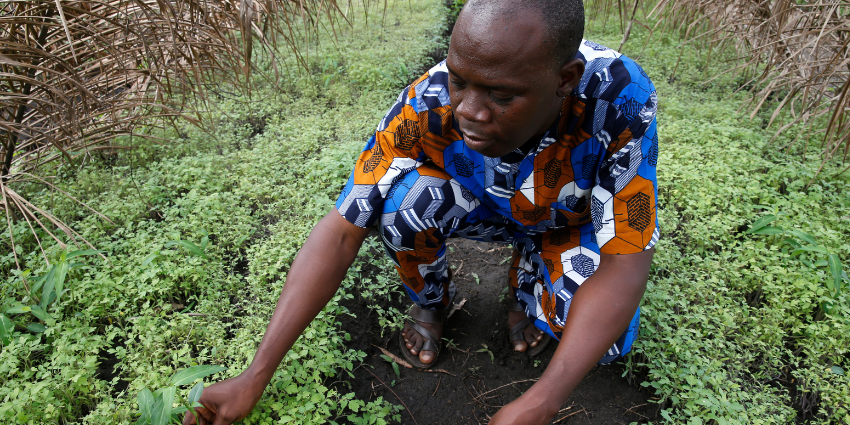
In 2013, the Grameen Crédit Agricole Foundation created the “African Facility” technical assistance programme funded by the Agence française de développement (AFD).
Feedback on the programme with the testimony of Thomas DOVONOU – Head of Credit Department, in charge of the Promotion of New Products at RENACA.
RENACA is a Tier 2 microfinance institution created in 2005 to strengthen significantly the economic base of vulnerable rural, peri-urban and urban self-employed populations. RENACA provides individual and group loans to a predominantly female clientele in six regions of Benin. Within the technical assistance programme of the African Facility, RENACA has received support from the YAPU consulting firm to strengthen its actions in inclusive green finance.
Why was the development of a business plan important for your institution?
This mission was an initial intervention with RENACA-Benin (Réseau National des Caisses Villageoises d’Epargne et de Crédit Autogérées du Bénin) to develop our green agenda and define our organizational objectives. On the one hand, we wanted to benefit from an introductory awareness on the concept of inclusive green finance. On the other hand, an institutional assessment was needed to do a situational analysis of our actions in the field of inclusive green finance in order to identify and take advantage of market opportunities.
As RENACA operates mainly in rural areas, one of our priorities was to receive advice to develop our agricultural credit product offering, in terms of scope, productivity and management of risks linked to climate change. The consulting firm also trained us on the concept of Climate-Smart Agriculture.
What did you expect from the consultant? Did the results meet your expectations?
The YAPU consulting firm carried out an assessment of RENACA on its level of initial implementation of inclusive green finance, based on a review of our documentation, our processes and by interviewing our teams. The firm has truly worked with all of the Network’s players (general management managers, operational staff, elected representatives and clients) to define our challenges and structure our priorities in an action plan. This allowed us to have a framework to strengthen our activities towards a more active and responsible organization from an environmental point of view.
We particularly appreciated the participatory approach of YAPU, as well as the good preparation of the mission and the quality of the documentation provided.
What actions have you implemented following the mission?
We first completed a Green Index and shared the results within the Network. Thus, the teams were informed of our current situation in terms of the level of implementation of inclusive green finance and became aware of our areas of improvement and possible opportunities.
Then, the results of the mission were used to improve the inclusive green finance system through the implementation of some recommendations.
For instance, we drew up a list of activities excluded from funding because they are harmful to the environment and the well-being of customers (production of charcoal, extraction activities leading to the pollution of water bodies, etc.) In addition to this list, a list of behaviors for lasting change expected from our customers was formulated.
We have also developed our offer of agricultural financial products through the establishment of an appropriate system in terms of strategy, actor profile (operational agents and pool of agricultural finance specialists), procedures and policies, tools, financial resources, partnerships, etc.
Finally, RENACA has developed an environmental and social policy, which has been adopted by its Board of Directors. The next step will be to disseminate it to network stakeholders (operational agents, customers, elected officials, etc.).
Ultimately, thanks to YAPU’s intervention, we better understood the opportunities and challenges of inclusive green finance. This mission therefore enabled a real awareness of the Network’s teams, from general management to field agents.